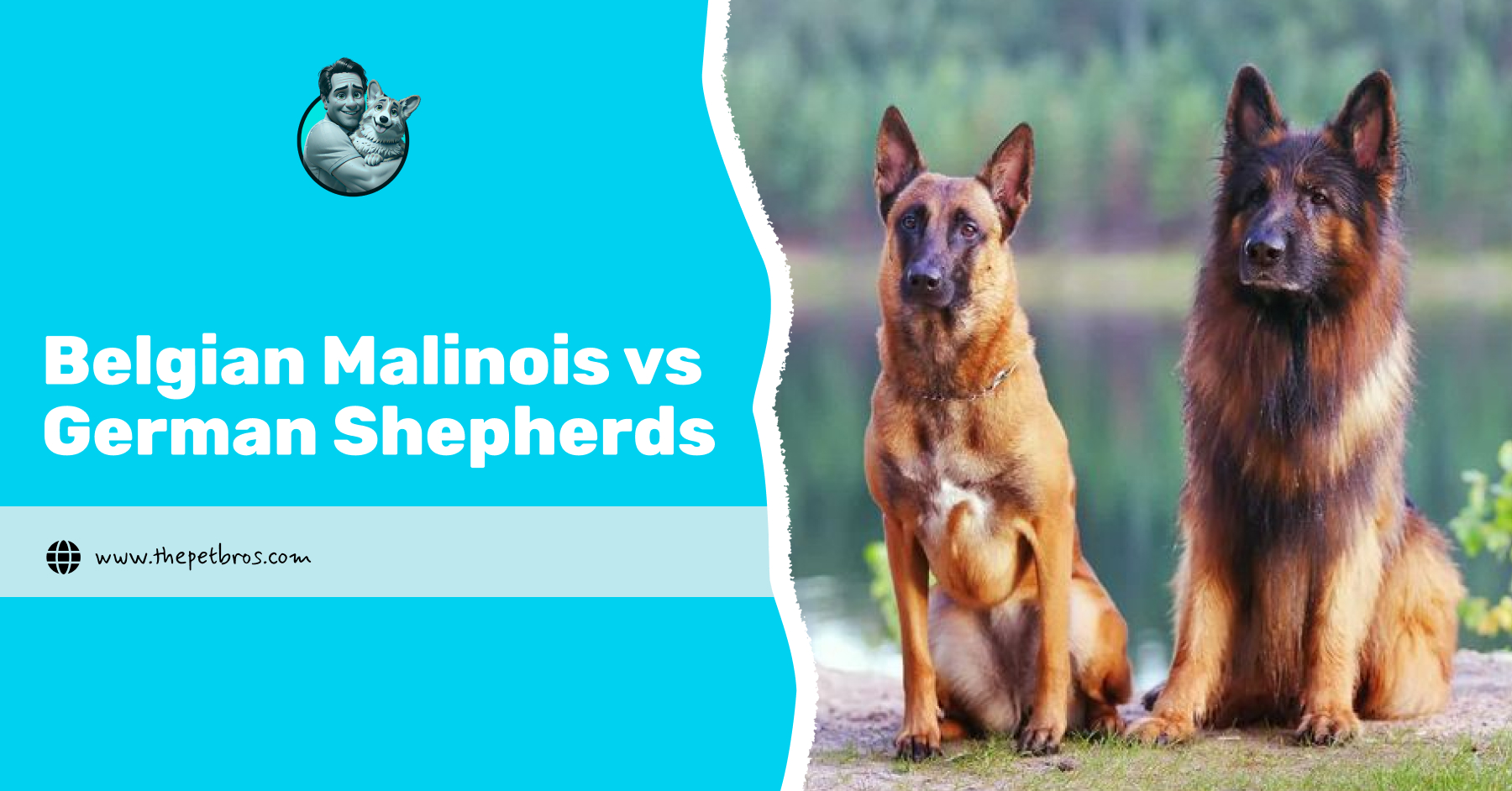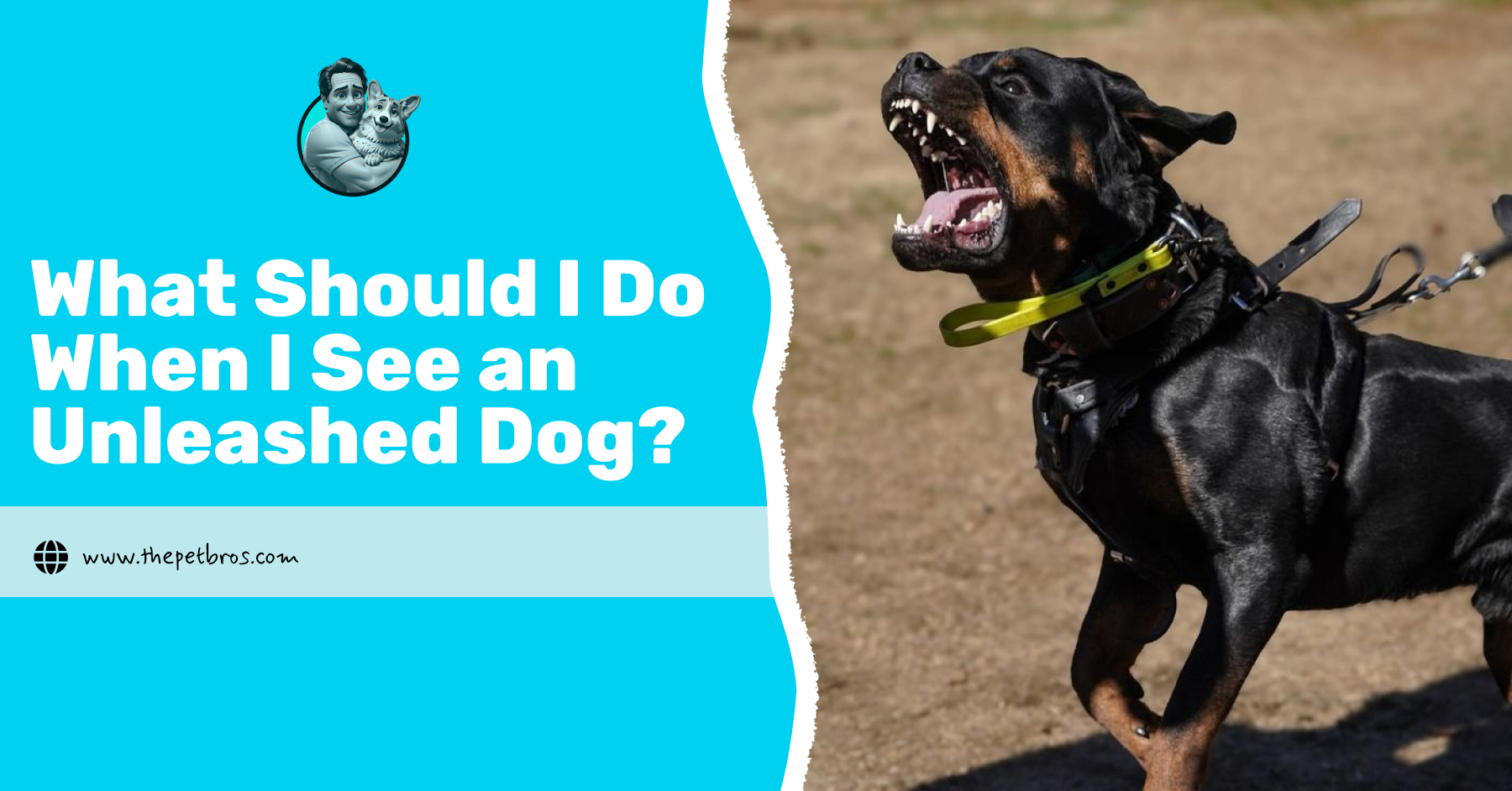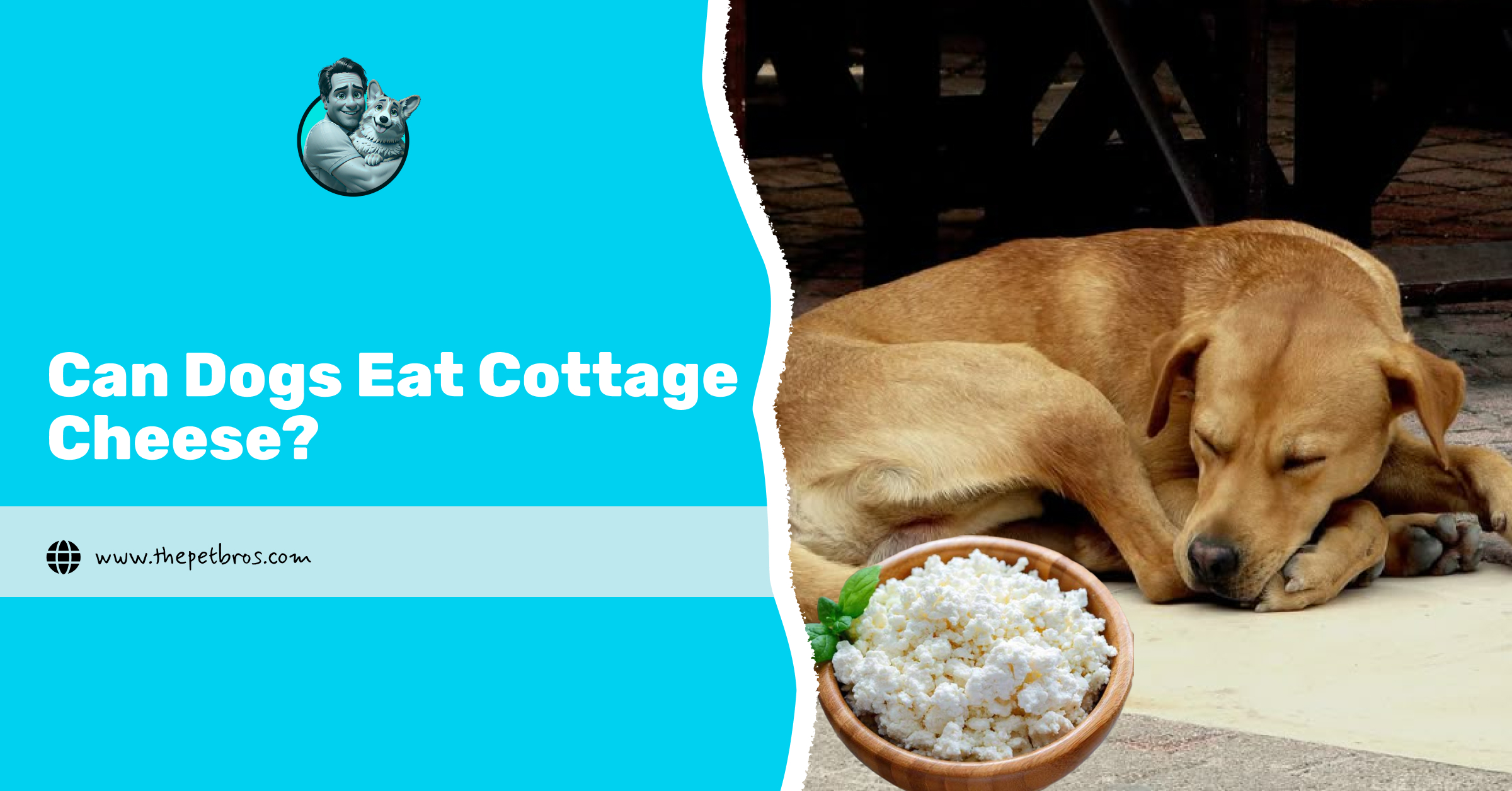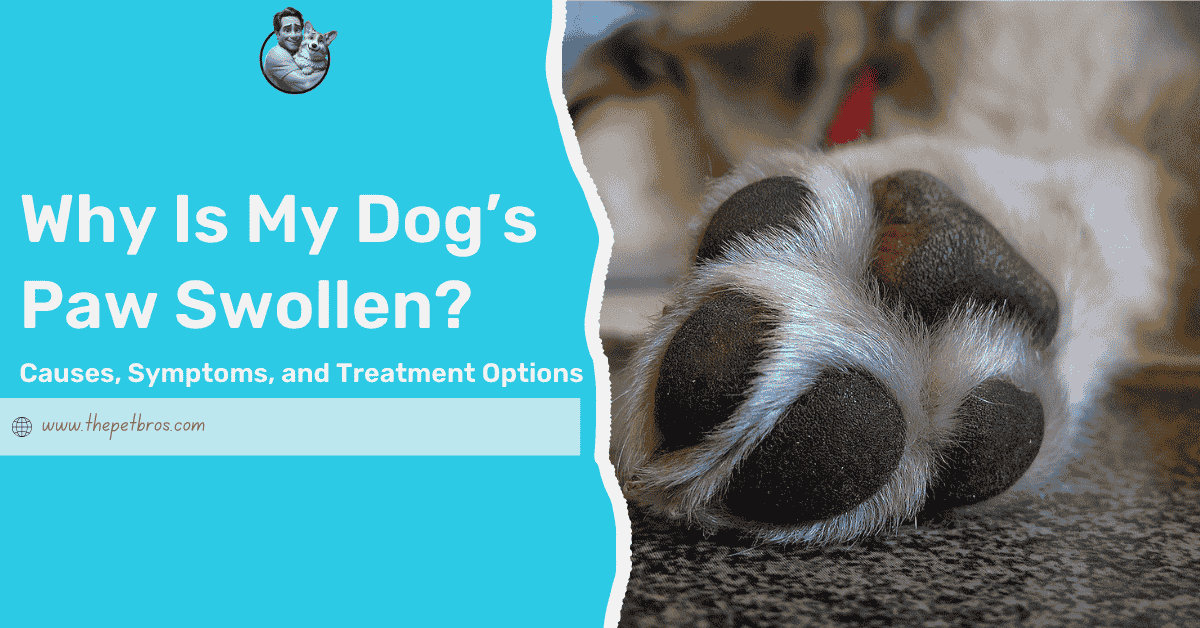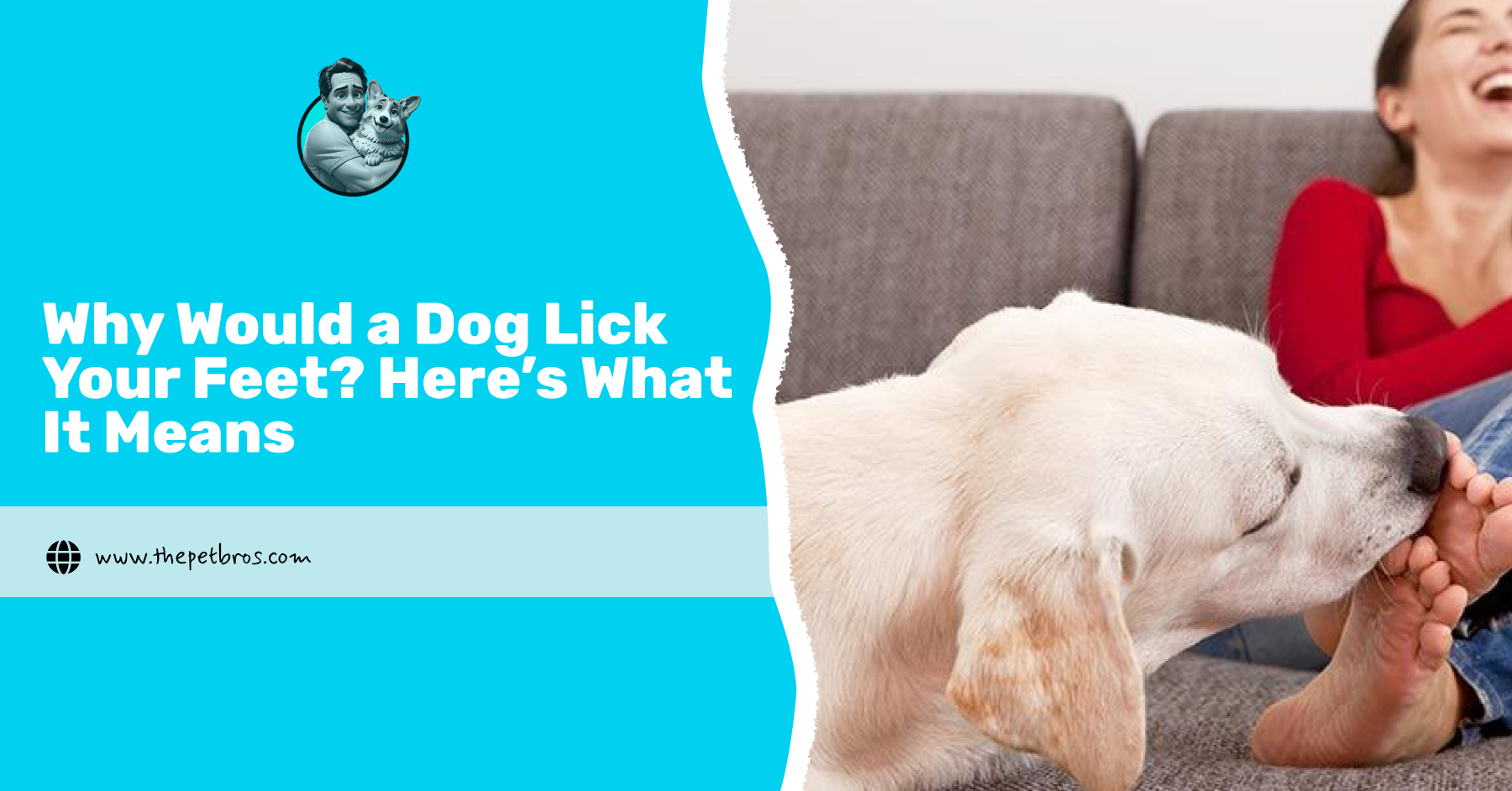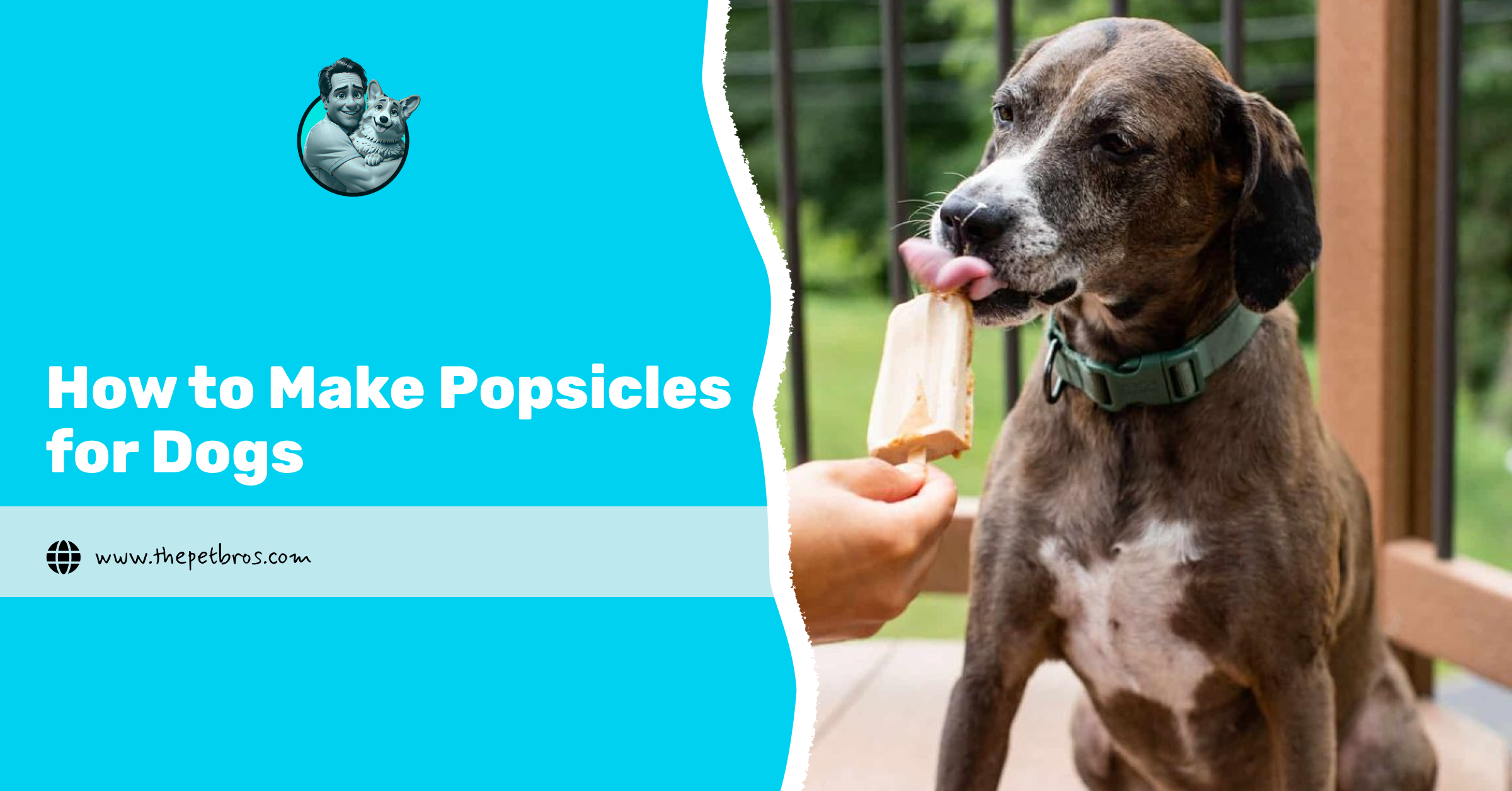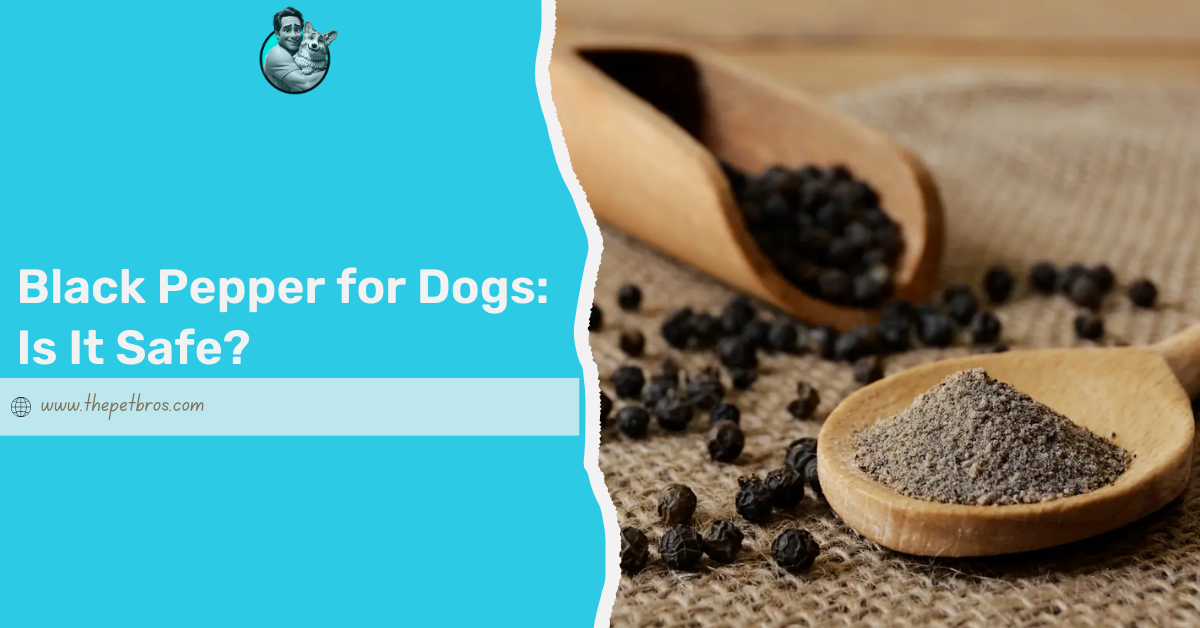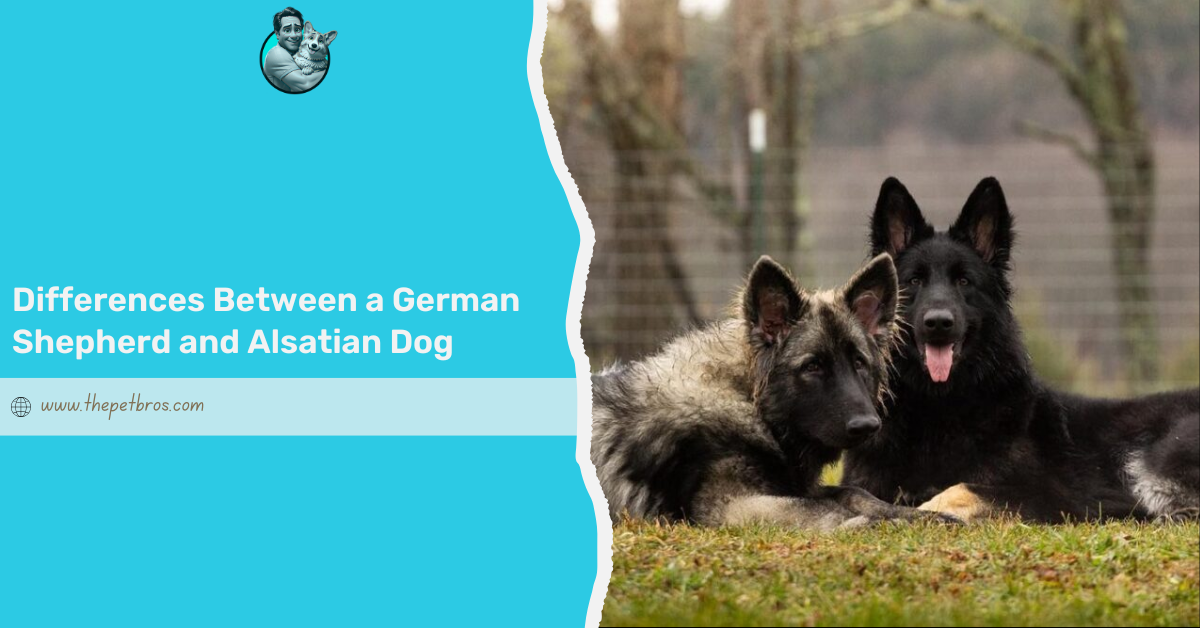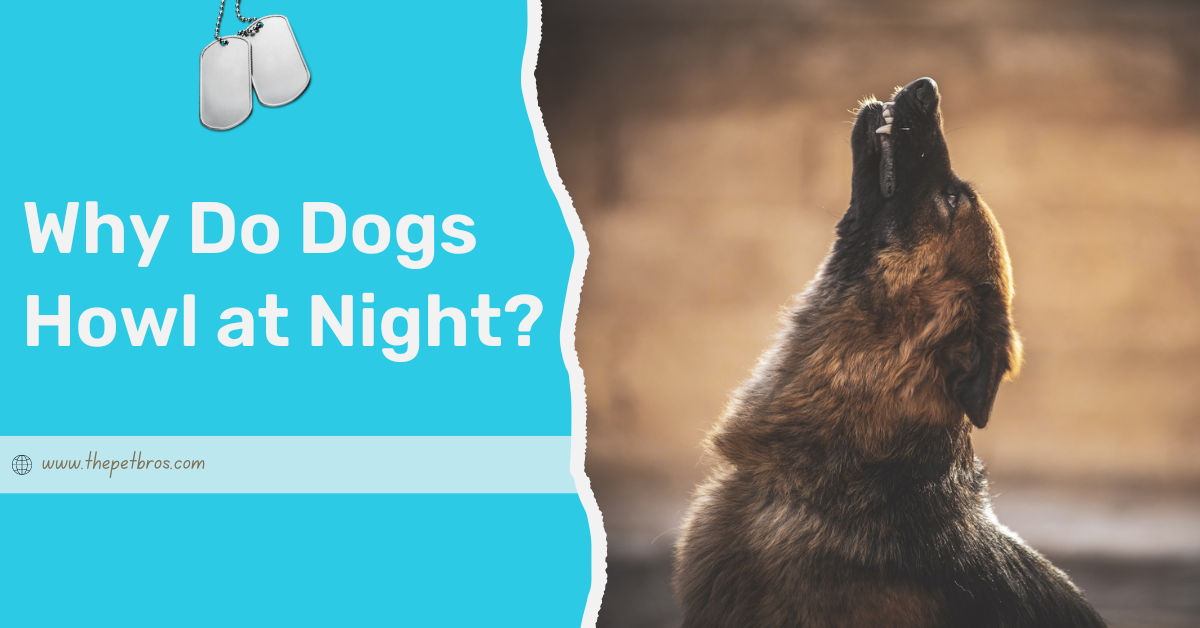To the untrained eye, Belgian Malinois and German Shepherds look nearly identical. Of course, there are several other dog breeds that look like the German Shepherd. However, the similarity between these two appears to “lead the park”. Upright ears, watchful eyes, a muscular frame built for action. It’s no wonder many people actively engage in debating two of the most iconic working dog breeds in the world: the Belgian Malinois vs German Shepherds debate.
So, Belgian Malinois vs German Shepherds, which dog is truly the better fit for you? Let’s get into what makes them so similar and what clearly sets them apart, while discussing some German Shepherd facts you might not know!
Why People Keep Confusing Belgian Malinois and German Shepherds
From a distance, it is easy to see why people compare Belgian Malinois and German Shepherds. Both breeds are tall, lean, and rocking that “I could star in a police drama” look. They have pointy ears, no shaky legs, and coats that often come in those gorgeous tan-and-black colour combos. Add in their alert expressions, and you have two dogs who look like they are always seconds away from catching a criminal or at least a squirrel.
The confusion gets even stronger because they are both herding breeds with impressive working dog backgrounds. This means they carry themselves with the same confident, focused energy. To the untrained eye, they look like the same model from different production years. But look a little closer, and you will start to notice the differences.
The Malinois tends to be slimmer, with a slightly more delicate face and shorter coat, while the German Shepherd usually has a stockier build and a thicker, more luxurious coat. Think of it like two siblings, where one is built for sprinting and the other is built for strength. Another comparison that falls in this sort of categorisation is the American Alsatian and German Shepherd debate.
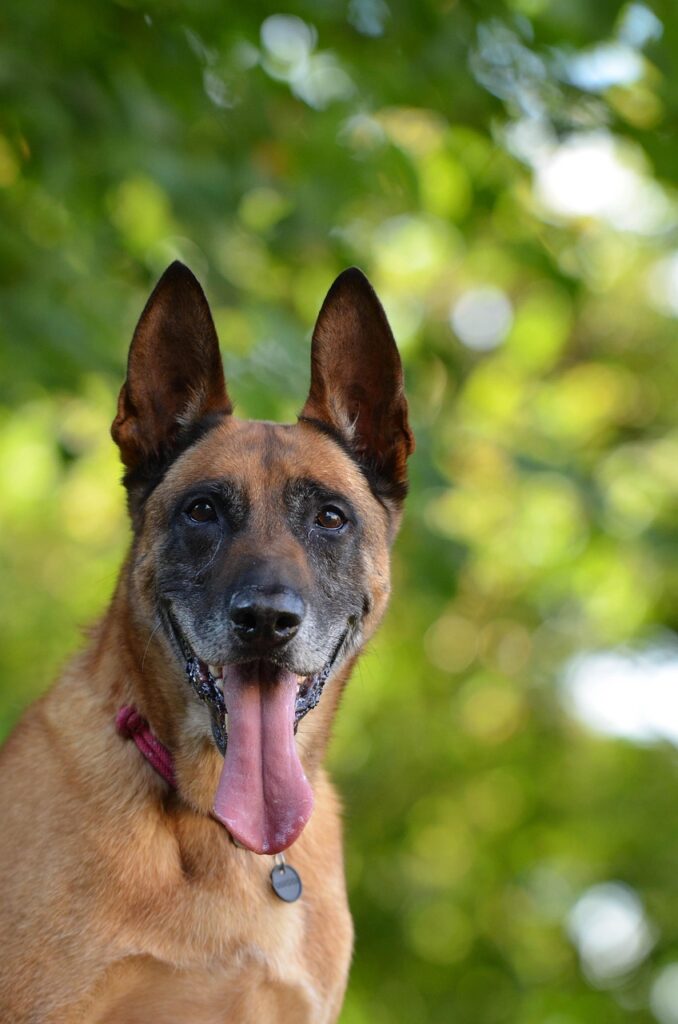
Which Dog Has the Better Temperament and Personality
When it comes to affection, German Shepherds often steal the show! They are the type to flop next to you after a long day and happily soak up as many belly rubs as you can give. German Shepherds love to be pampered. They form strong bonds with their whole family, which makes them wonderful companions. Their loyalty is unmatched, and they have that sweet mix of protector and gentle friend that so many people adore.
Belgian Malinois, on the other hand, are deeply devoted, too, but usually to one special person. They will thrive if they have regular, structured work or training sessions. A Mal without a job can get bored, and a bored Malinois is a little like a teenager with too much energy and not enough supervision. They are focused, intense, and brilliant, but they do best with someone who has the time and experience to keep them engaged.
The big difference? German Shepherds tend to fit more easily into relaxed home life, while Malinois are like athletes who want to keep training. If your home is busy with children, visitors, and plenty of lounging on the sofa, a Shepherd will probably adapt more happily.
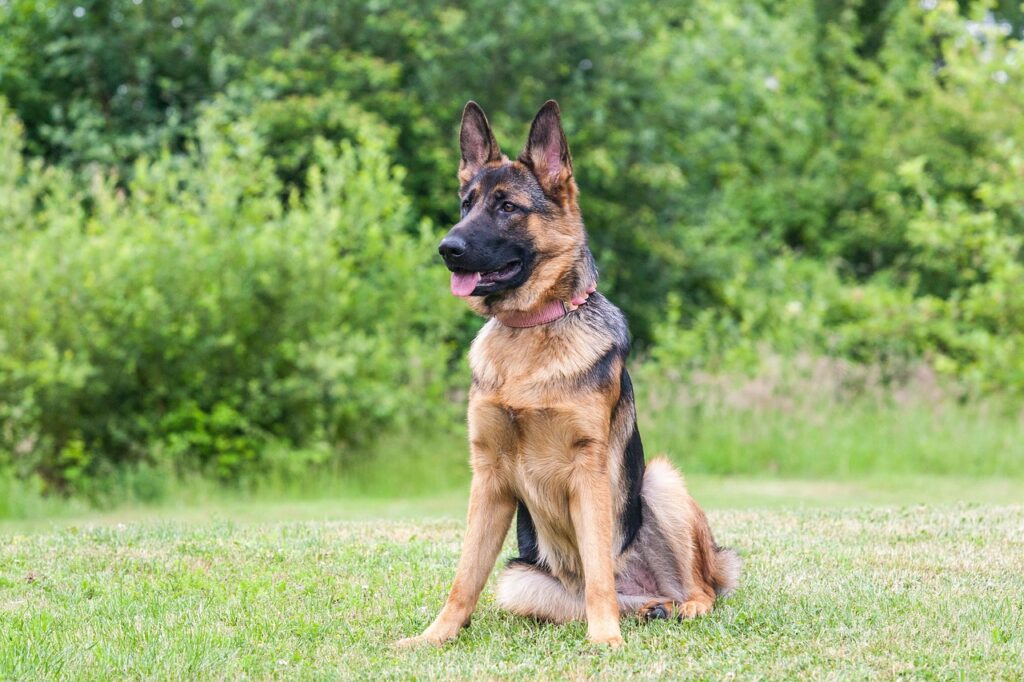
Which Breed is More Energetic?
Both Belgian Malinois and German Shepherds are bundles of energy, but the Malinois takes things to another level! This breed has a drive that just does not quit. They thrive on structured activities like agility courses, and they light up when they have a job to do.
Without those outlets, a Mal can become restless, which often leads to some rather “creative” ways of entertaining themselves, like digging under fences or tearing down your furniture. They need more than a casual stroll to feel satisfied.
German Shepherds are certainly no couch potatoes, but they are generally a bit more adaptable. They will enjoy a game of fetch, a brisk walk, or even a family hike just as much as an intense training session. While they also need plenty of physical and mental stimulation, they are usually more content with a mix of play, exercise, and downtime. However, leave either breed without enough engagement, and you might end up with howling at night, digging, or other signs of canine mischief!
How Do They Respond to Training and Socialisation?
Both the German Shepherd and Belgian Malinois thrive on positive reinforcement, whether that is a tasty treat, an enthusiastic “good boy,” or a quick play session as a reward. Starting socialisation early is key for both, helping them grow into confident, well-mannered adults who are comfortable with different people, animals, and environments. Without it, you might end up with a pup who is a little too quick to guard or get reactive.
The Belgian Malinois are incredibly focused and driven, which can be amazing in the right hands. But that intensity means they need a confident handler who can channel all that energy in a positive direction. German Shepherds, on the other hand, are generally more playful and eager to please, making them a bit more forgiving for first-time owners. They still benefit from experienced guidance, but their adaptable, people-oriented nature often makes training feel more like a fun bonding session than a full-time job.
Belgian Malinois vs German Shepherds: Appearance and Maintenance
German Shepherds have a more muscular build and a fuller coat, often in the classic black-and-tan two-tone pattern. Their dense double coat gives them a striking, rugged appearance. But it also means they tend to shed more throughout the year, with heavier seasonal blowouts.
Belgian Malinois are leaner and lighter on their feet, with shorter, uniform coats in shades of fawn or mahogany, accented by a black mask. Their sleeker build gives them a more streamlined, athletic look.
When it comes to grooming, both breeds are fairly low-maintenance, but they still need regular care to look and feel their best. Weekly brushing is enough to keep their coats in good condition and reduce loose fur, although German Shepherd owners will need to brush more often during shedding season. Neither breed requires elaborate grooming, but a little consistent upkeep goes a long way in keeping them looking sharp.
Health and Lifespan: What to Expect Long-Term
German Shepherds typically live between seven and ten years, which is relatively short for a medium to large breed. Their shorter lifespan is partly due to genetic predispositions to certain health conditions, which can impact their quality of life in later years.
Belgian Malinois, on the other hand, often enjoy a much longer lifespan of fourteen to sixteen years, making them a better option for those seeking a long-term companion.
Both breeds share some common health risks, including hip and elbow dysplasia, which can lead to mobility issues, and bloat, a potentially life-threatening stomach condition. Responsible breeding, a balanced diet, and proper exercise can help reduce these risks, but regular vet check-ups are still essential.
There are also some breed-specific concerns to consider. Belgian Malinois may be prone to cataracts and epilepsy, while German Shepherds are at higher risk for degenerative myelopathy, a progressive spinal cord disease. Being aware of these conditions allows owners to monitor symptoms early and seek prompt treatment.
Now, Which Dog Fits Your Lifestyle Best?
If you want a loyal family dog who’s great with kids, a German Shepherd may suit you. For an energetic, focused companion who thrives on challenging tasks, the Belgian Malinois is ideal. Whichever breed you choose to side with in the Belgian Malinois vs German Shepherds debate largely depends on your activity level, experience, and time for training.
Frequently Asked Questions
Does the military use German Shepherds or Belgian Malinois?
Both are used, but Belgian Malinois are more common in elite military units due to their speed, endurance, and trainability in high-pressure environments.
Why are Belgian Malinois used instead of German Shepherds?
Belgian Malinois are smaller, faster, and more agile than German Shepherds, making them ideal for missions that require speed, precision, and vertical agility.
Who has a stronger bite, Belgian Malinois or German Shepherd?
German Shepherds typically have a stronger bite force on average, but both breeds have powerful jaws capable of delivering significant pressure.
Are Belgian Malinois good with children?
They can be, but they’re usually better suited to households with older kids and experienced owners. Their high energy and prey drive can be overwhelming for small children.
Do German Shepherds shed more than Belgian Malinois?
Yes, German Shepherds tend to shed more, especially during seasonal coat changes. Regular grooming helps manage this, but be prepared for fur around the house.






